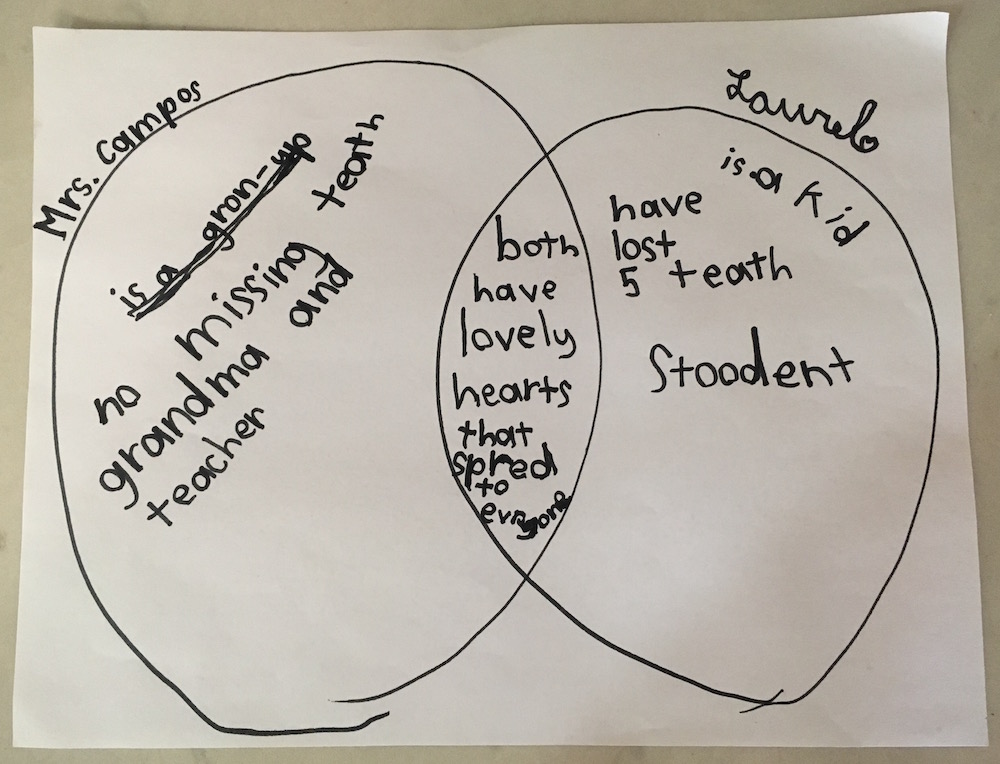Archive for September, 2016
September 30, 2016 @ 11:52 am· Filed by Mark Liberman under Linguistics in the comics
Tim Leonard points out that today's Questionable Content has a piece of dialogue in which their (in "their ship"), though referring to a male individual, could not felicitously be exchanged for his:

Read the rest of this entry »
Permalink
September 30, 2016 @ 8:28 am· Filed by Mark Liberman under Language and politics
 A couple of days ago, in a café in Paris, someone noticed a young woman intently watching the Clinton/Trump debate, and commented "Isn't watching the debate so much better than working?" But the debate watcher was Ye Tian, a postdoc at the Laboratoire de linguistique formelle, Université Paris Diderot (Paris 7), part of a project whose acronym is DUEL — "Disfluencies, Exclamations and Laughter in Dialogue". And so her interest in the video was a professional one, with preliminary results that she published as a blog post here. Ye Tian's analysis is reproduced below, with her permission, as a guest post.
A couple of days ago, in a café in Paris, someone noticed a young woman intently watching the Clinton/Trump debate, and commented "Isn't watching the debate so much better than working?" But the debate watcher was Ye Tian, a postdoc at the Laboratoire de linguistique formelle, Université Paris Diderot (Paris 7), part of a project whose acronym is DUEL — "Disfluencies, Exclamations and Laughter in Dialogue". And so her interest in the video was a professional one, with preliminary results that she published as a blog post here. Ye Tian's analysis is reproduced below, with her permission, as a guest post.
Read the rest of this entry »
Permalink
September 30, 2016 @ 12:52 am· Filed by Eric Baković under Open Access, The academic scene
[This is a joint post by Eric Baković and Kai von Fintel, cross-posted at Kai's blog.]
We have been following an ongoing story involving Zombie Lingua with great interest. For those unaware of it, and perhaps for those with only some awareness of it, here is what we currently know.
It will help to start by identifying the main characters in this story:
OK, here we go.
Read the rest of this entry »
Permalink
September 29, 2016 @ 6:48 pm· Filed by Victor Mair under Errors, Spelling, Writing
Drawn by a seven year old in Los Angeles:

Read the rest of this entry »
Permalink
September 29, 2016 @ 6:33 pm· Filed by Victor Mair under Grammar, Syntax
Yesterday, Buzzfeed published an article titled "This Woman Ate A Pork Bun In A Typhoon And Now Everyone Loves Her" (9/28/16). It featured this drawing:

Read the rest of this entry »
Permalink
September 29, 2016 @ 6:28 pm· Filed by Victor Mair under Alphabets, Borrowing, Language and art, Writing systems
A little over a year ago, we had our first look at "Konglish", Korean-style English. If it was thriving then, it seems to be positively luxuriant now:
"The Beauty and Perils of Konglish, the Korean-English Hybrid" (Margaret Rhodes, WIRED, 9/29/16)
Read the rest of this entry »
Permalink
September 29, 2016 @ 4:07 pm· Filed by Geoffrey K. Pullum under Computational linguistics, Humor, Language and computers, Prescriptivist poppycock, Usage advice
Let me explain, very informally, what a predictive text imitator is. It is a computer program that takes as input a passage of training text and produces as output a new text that is composed quasi-randomly except that it matches the training text with regard to the frequencies of word or character sequences up to some fixed finite length k.
(There has to be such a length limit, of course: the only text in which the word sequence of Melville's Moby-Dick is matched perfectly is Melville's Moby-Dick, but what a predictive text imitator trained on Moby-Dick would do is to produce quasi-random fake-Moby-Dickish gibberish in which each sequence of not more than k units matches Moby-Dick with respect to the transition probabilities between adjacent units.)
I tell you this because a couple of months ago Jamie Brew made a predictive text imitator and trained it on my least favorite book in the world, William Strunk's The Elements of Style (1918). He then set it to work writing the first ten sections of a new quasi-randomly generated book. You can see the results here. The first point at which I broke down and laughed till there were tears in my eyes was at the section heading 'The Possessive Jesus of Composition and Publication'. But there were other such points too. Take a look at it. And trust me: following the advice in Jamie Brew's version of the book won't do your writing much more harm than following the original.
Read the rest of this entry »
Permalink
September 29, 2016 @ 11:17 am· Filed by Geoffrey K. Pullum under Humor, Language and culture, Language and travel, Language attitudes, Language contact, Politics of language, Silliness, Sociolinguistics, Speech-acts
Please, talk to each other. It's important to linguists that there should be plenty of chat. We need language live, on the hoof. Millions of spoken word tokens everywhere, so that we can (for example) compare Donald Trump's amazingly high proportion of first-person singular pronouns to the average for non-narcissists like typical Language Log readers. 
However, beware of engaging in chat to strangers on the subway if you are in London. A new campaign for people to wear a "Tube chat?" button when traveling on London Underground trains, intended to provoke random conversation with other passengers, has been met with horror and disdain by the misanthropic curmudgeons who use the services in question. No chat please; we're Londoners.
[Comments are turned off out of respect for readers in London.]
Permalink
September 28, 2016 @ 5:46 pm· Filed by Victor Mair under Language and advertising, Names, Numbers, Slang, Topolects
Here we go again:
"Samsung’s Galaxy On7 goes official" (Marketing-Interactive, 9/28/16)
As we’ve covered shortly two weeks ago, the pronunciation of “7″ sounds like “penis” in Cantonese, and the latest Samsung Galaxy On7 launch has once again stirred up discussion on the internet in Hong Kong.
The Cantonese pronunciation of “On9″ [sic: there seems to be a mix-up here] is similar to slang meaning “stupid”, and many are saying the new release is a crossover between the two slang words.
Read the rest of this entry »
Permalink
September 28, 2016 @ 8:55 am· Filed by Geoffrey K. Pullum under Grammar, Prescriptivist poppycock, Syntax, Writing
The Economist, in a leader last April about the Panama Papers revelation, which I really should have brought to your attention sooner (it fell through the cracks of my life), told us that "The daughters of Azerbaijan's president appear secretly to control gold mines."
They appear secretly? Where are these secret appearances? Are they scheduled in advance, or do they occur randomly? And how would a secret appearance help to control a gold mine?
Read the rest of this entry »
Permalink
September 28, 2016 @ 8:35 am· Filed by Mark Liberman under WTF
On the fence around a construction site that I walk past every day is this sign:

Read the rest of this entry »
Permalink
September 27, 2016 @ 5:59 pm· Filed by Victor Mair under Translation
According to these two articles, Google Translate is taking a quantum leap forward in the quality of its services, starting with Mandarin to English:
"Google says its new AI-powered translation tool scores nearly identically to human translators" (Quartz, 9/27/16)
"An Infusion of AI Makes Google Translate More Powerful Than Ever" (WIRED, 9/27/16)
Read the rest of this entry »
Permalink
September 27, 2016 @ 12:56 pm· Filed by Ben Zimmer under Language and politics, Misnegation
In addition to the many "nots" he uttered in last night's debate, Trump poured on the negations in this tweet today:
Read the rest of this entry »
Permalink





